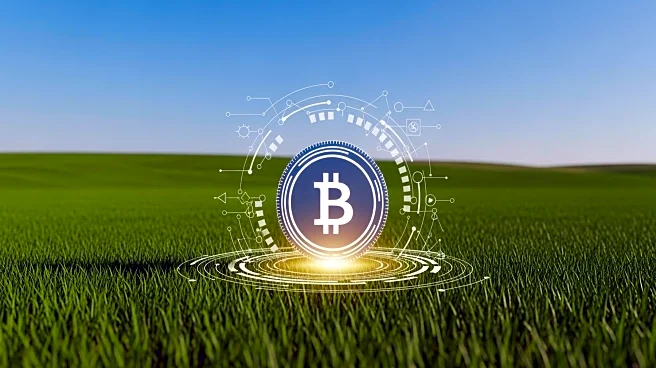What's Happening?
AgriFi, a blockchain-powered agricultural finance protocol, is revolutionizing the investment landscape for farmland by introducing tokenized agriculture on the Polygon network. This initiative allows
fractional ownership of farmland, making it accessible to a broader range of investors. By leveraging DeFi infrastructure and data-verified agriculture, AgriFi transforms farmland from an illiquid asset into a transparent, tradable, and traceable digital investment. The AGF Token enables investors to participate in the agricultural economy, providing farmers with efficient access to capital and allowing consumers to trace their food sources confidently. This approach aims to democratize agricultural investment, offering liquidity, diversification, and transparency through blockchain technology.
Why It's Important?
The tokenization of agriculture by AgriFi represents a significant shift in how farmland can be utilized as an investment asset. Traditionally, farmland has been inaccessible to ordinary investors due to high entry thresholds and geographic constraints. By enabling fractional ownership, AgriFi opens up opportunities for retail and institutional investors alike, potentially increasing capital flow into the agricultural sector. This development aligns with the growing demand for sustainable and traceable investments, as agriculture inherently supports ESG-focused goals. Additionally, the integration of IoT sensors and AI models ensures data-backed transparency, reducing risks associated with agricultural investments. This could lead to a more sustainable and efficient agricultural economy, benefiting farmers, investors, and consumers.
What's Next?
AgriFi's model of tokenized agriculture is poised to expand further, potentially attracting more investors interested in sustainable and traceable assets. As the platform grows, it may introduce new farmland projects and protocol parameters, allowing AGF token holders to participate in governance decisions. The success of this initiative could inspire similar projects in other sectors, further integrating real-world assets into the DeFi economy. Stakeholders, including farmers, investors, and consumers, are likely to monitor the platform's performance closely, assessing its impact on agricultural investment and sustainability.
Beyond the Headlines
The tokenization of agriculture by AgriFi could have broader implications for the agricultural industry and the DeFi sector. By providing a transparent and traceable investment model, AgriFi may enhance trust in food production and supply chains. This could lead to increased consumer confidence and demand for ethically sourced products. Furthermore, the integration of blockchain technology in agriculture might drive innovation in farming practices, promoting more efficient and sustainable methods. As the platform evolves, it could set a precedent for other industries to explore tokenization as a means of democratizing access to real-world assets.










